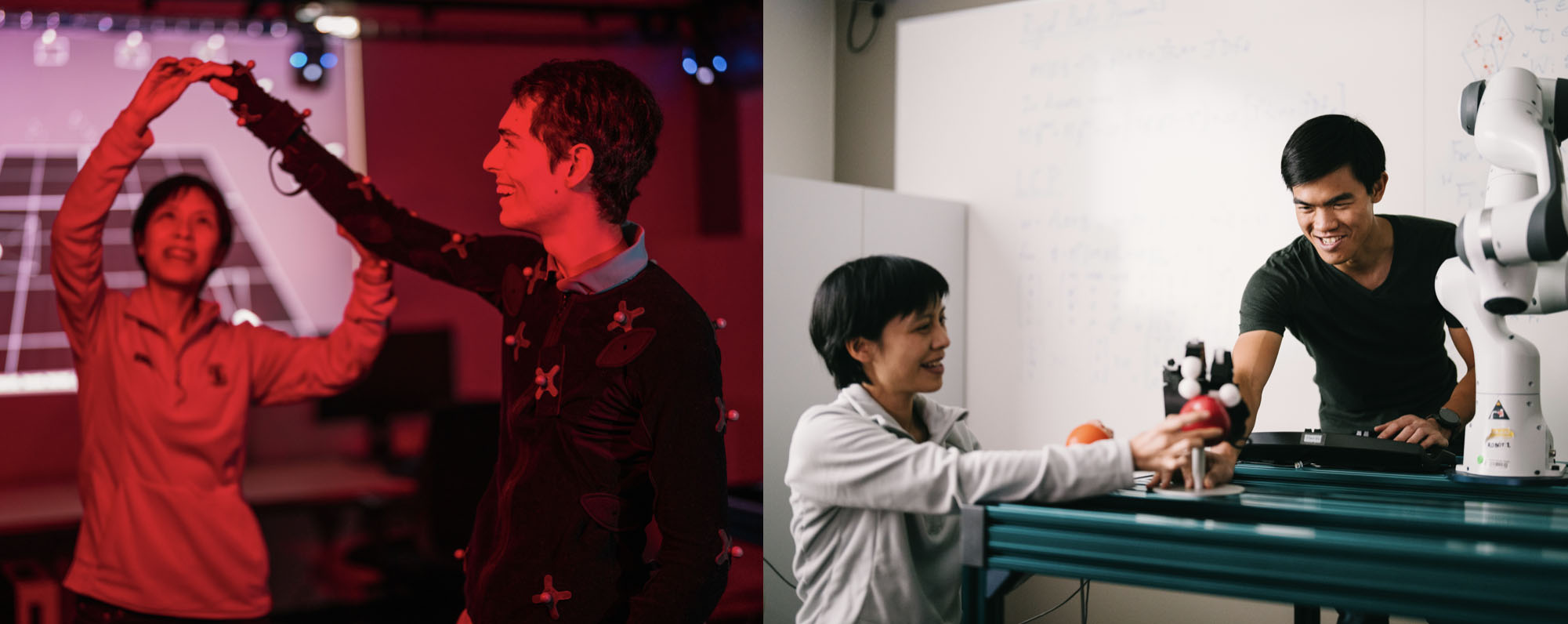Perception amidst interaction: spatial AI with vision and touch for robot manipulation
Abstract: Robots currently lack the cognition to replicate even a fraction of the tasks humans do, a trend summarized by Moravec's Paradox. Humans effortlessly combine their senses for everyday interactions—we can rummage through our pockets in search of our keys, and deftly insert them to unlock our front door. Before robots can demonstrate such dexterity, [...]
Toward Human-Centered XR: Bridging Cognition and Computation
Abstract: Virtual and Augmented Reality enables unprecedented possibilities for displaying virtual content, sensing physical surroundings, and tracking human behaviors with high fidelity. However, we still haven't created "superhumans" who can outperform what we are in physical reality, nor a "perfect" XR system that delivers infinite battery life or realistic sensation. In this talk, I will discuss some of our [...]
Carnegie Mellon Graphics Colloquium: C. Karen Liu : Building Large Models for Human Motion
Building Large Models for Human Motion Large generative models for human motion, analogous to ChatGPT for text, will enable human motion synthesis and prediction for a wide range of applications such as character animation, humanoid robots, AR/VR motion tracking, and healthcare. This model would generate diverse, realistic human motions and behaviors, including kinematics and dynamics, [...]
Teaching a Robot to Perform Surgery: From 3D Image Understanding to Deformable Manipulation
Abstract: Robot manipulation of rigid household objects and environments has made massive strides in the past few years due to the achievements in computer vision and reinforcement learning communities. One area that has taken off at a slower pace is in manipulating deformable objects. For example, surgical robotics are used today via teleoperation from a [...]
Zeros for Data Science
Abstract: The world around us is neither totally regular nor completely random. Our and robots’ reliance on spatiotemporal patterns in daily life cannot be over-stressed, given the fact that most of us can function (perceive, recognize, navigate) effectively in chaotic and previously unseen physical, social and digital worlds. Data science has been promoted and practiced [...]
RI Faculty Business Meeting
Meeting for RI Faculty. Discussions include various department topics, policies, and procedures. Generally meets weekly.
Emotion perception: progress, challenges, and use cases
Abstract: One of the challenges Human-Centric AI systems face is understanding human behavior and emotions considering the context in which they take place. For example, current computer vision approaches for recognizing human emotions usually focus on facial movements and often ignore the context in which the facial movements take place. In this presentation, I will [...]
[MSR Thesis Talk] SplaTAM: Splat, Track & Map 3D Gaussians for Dense RGB-D SLAM
Abstract: Dense simultaneous localization and mapping (SLAM) is crucial for numerous robotic and augmented reality applications. However, current methods are often hampered by the non-volumetric or implicit way they represent a scene. This talk introduces SplaTAM, an approach that leverages explicit volumetric representations, i.e., 3D Gaussians, to enable high-fidelity reconstruction from a single unposed RGB-D [...]
Language: You’ve probably heard of it, read it, written it, gestured it, mimed it… Why can’t robots?
Abstract: Language is how meaning is conveyed between humans, and now the basis of foundation models. By implication, it's the most important modality for all of AGI and will replace the entire robotics control stack as the most important thing for all of us to work on.









